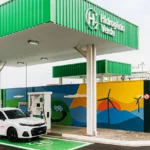Bahia, one of Brazil’s most dynamic states, has attracted global attention for its effective economic policies. Among these, tax incentives have played a key role in attracting investment and fostering regional development. In this week’s article, Bring Consulting explores how tax incentives, especially those related to ICMS, and the Industrial Development and Economic Integration Program (Probahia), have been essential levers for Bahia’s economic growth.
Tax incentives and benefits: A boost to investment
The state of Bahia recognizes that, in a globalized and highly competitive environment, creating attractive conditions for investors is essential. Therefore, the state government has implemented a series of tax incentives that aim to facilitate and stimulate the implementation of new businesses, as well as the expansion of already established companies.
ICMS reduction
One of the main tax incentives offered by Bahia is the reduction of taxes on the circulation of goods and services (ICMS). This incentive is particularly relevant for companies that invest in areas considered a priority by the state government, such as agribusiness, renewable energy, industry and infrastructure.
The reduction in ICMS acts as a direct stimulus for companies, which now operate with a lower tax burden, increasing their competitiveness both in the domestic and international markets. This not only attracts new companies to the state, but also encourages those already established to expand their operations.
Effectiveness of Tax Incentives
Studies conducted by the Bahia State Department of Economic Development show that the reduction of ICMS is one of the main factors that attract investments to the state. A 2022 survey revealed that 78% of the companies that invested in Bahia considered tax incentives as a determining factor in their location decision. In addition, the survey indicated an increase of 15% in the installation of new companies compared to neighboring states that offer fewer incentives.
Probahia Program
These tax incentives are part of a larger context, the Industrial Development and Economic Integration Program, known as Probahia. This program is a state government initiative that seeks to integrate different regions of the state into the economic development process, promoting balanced and sustainable industrialization.
Probahia offers a series of benefits, such as the granting of presumed ICMS credits, deferral of tax payments on specific operations and tax exemptions for companies that set up in certain geographic areas or that invest in strategic sectors.
Success story: Camaçari Industrial Hub
The Camaçari Industrial Complex is an emblematic example of how tax incentives can transform a region. Founded in the 1970s, the complex has benefited from substantial tax incentives, including the reduction of ICMS (Tax on Goods and Services) and support from Probahia (Probahia). Today, the Camaçari Complex is the largest integrated industrial complex in the Southern Hemisphere, housing more than 90 companies in the chemical, petrochemical, automotive, metallurgical and energy sectors. Thanks to tax incentives, the Complex has attracted significant investment.
Economic impacts and results
Tax incentives have shown significant results in Bahia. With the reduction of ICMS, the state has attracted a significant volume of investments, which translate into job creation, increased industrial production and strengthening of strategic sectors.
The effectiveness of tax incentives can also be measured by the growth of Bahia's GDP. In 2022, the state recorded GDP growth of 2.3%, exceeding the national average. This growth was mainly driven by agribusiness and the services sector, both of which benefited from favorable tax policies.
Bahia has demonstrated that well-structured fiscal policies are essential for regional economic development. With a strategy focused on sustainability and innovation, the fiscal incentives offered by the state will continue to play a central role in promoting economic growth. The state is preparing for a future of even greater prosperity, where the balance between economic development and social responsibility becomes increasingly evident.


